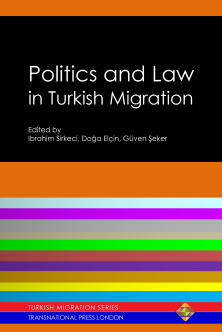The role of Turkish community organisations in Berlin: Their role in Turkey-Germany and Turkey-European Union relations
The role of Turkish community organisations in Berlin: Their role in Turkey-Germany and Turkey-European Union relations
Author(s): Selcen Öner
Subject(s): Politics, Geography, Regional studies, International relations/trade, Migration Studies, Inter-Ethnic Relations, Politics and Identity
Published by: Transnational Press London
Keywords: Turkey; Germany; Turkish community organisation; Berlin; EU; international relations; immigrants; citizenship policies;
Summary/Abstract: For a long time, German citizenship policies made it almost impossible for Turkish immigrants to naturalize and become part of the political community. This lack of formal opportunities led immigrants to develop a more civil society-orientated means of participation (Odmalm, 2009: 154). During the early to mid-1960s, they avoided organized political activity. But as temporary guest worker programmes led to settlement, Turkish immigrants started to express diverse political identities and engage in group activities. The internal divisions over goals and strategies weakened Turkish community’s potential (Ögelman, 2003: 166-167). By the 1980s, the Turkish network of organizations had become the broadest of all immigrant groups in Germany, although it was more polarized along political lines than any other ethnic group (Schoeneberg, 1985: 424).
Book: Politics and Law in Turkish Migration
- Page Range: 155-169
- Page Count: 15
- Publication Year: 2015
- Language: English
- Content File-PDF

